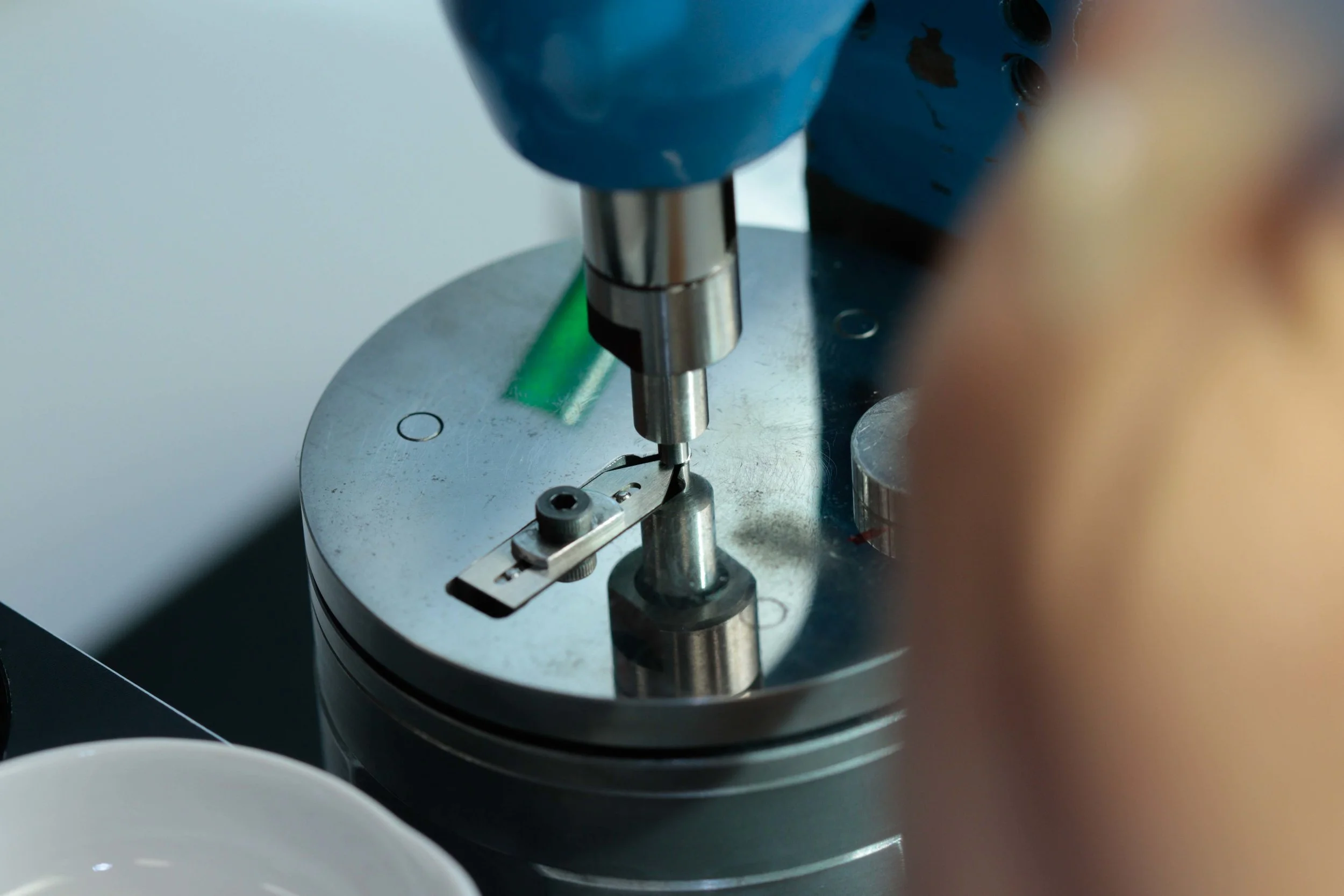A balance wheel, or balance, is the timekeeping device used in mechanical watches and some clocks, analogous to the pendulum in a pendulum clock. It is a weighted wheel that rotates back and forth, being returned toward its center position by a spiral torsion spring, the balance spring or hairspring. It is driven by the escapement, which transforms the rotating motion of the watch gear train into impulses delivered to the balance wheel. Each swing of the wheel (called a 'tick' or 'beat') allows the gear train to advance a set amount, moving the hands forward. The balance wheel and hairspring together form a harmonic oscillator, which due to resonance oscillates preferentially at a certain rate, its resonant frequency or 'beat', and resists oscillating at other rates. The combination of the mass of the balance wheel and the elasticity of the spring keep the time between each oscillation or ‘tick’ very constant, accounting for its near universal use as the timekeeper in mechanical watches to the present. From its invention in the 14th century until tuning fork and quartz movements became available in the 1960s, virtually every portable timekeeping device used some form of balance wheel. -Wikipedia-
A trial balance wheel still attached to the rod
A balance being checked and any remaining burs being removed with the brass point.
Assembling the impulse jewel onto the safety roller.
The saftey rollers before the impulse jewel is added.
The impulse jewel in place on the jig before the saftey roller is added.
The safety roller being pushed onto the balance staff.
The balance wheel in place with the roller underneath waiting to be pressed into position.
Poising the balances after they are assembled with the saftey roller and before adding the balance springs.
Making balance springs
Coiling 4 strands of balance spring into one mould.
Below the balance spring fully wound with the 4 strands of balance spring, on the right the lens is opened to be able to remove the assembly.
On the left are full rings waiting to be heat treated, on the right empty rings waiting for assembly.






























